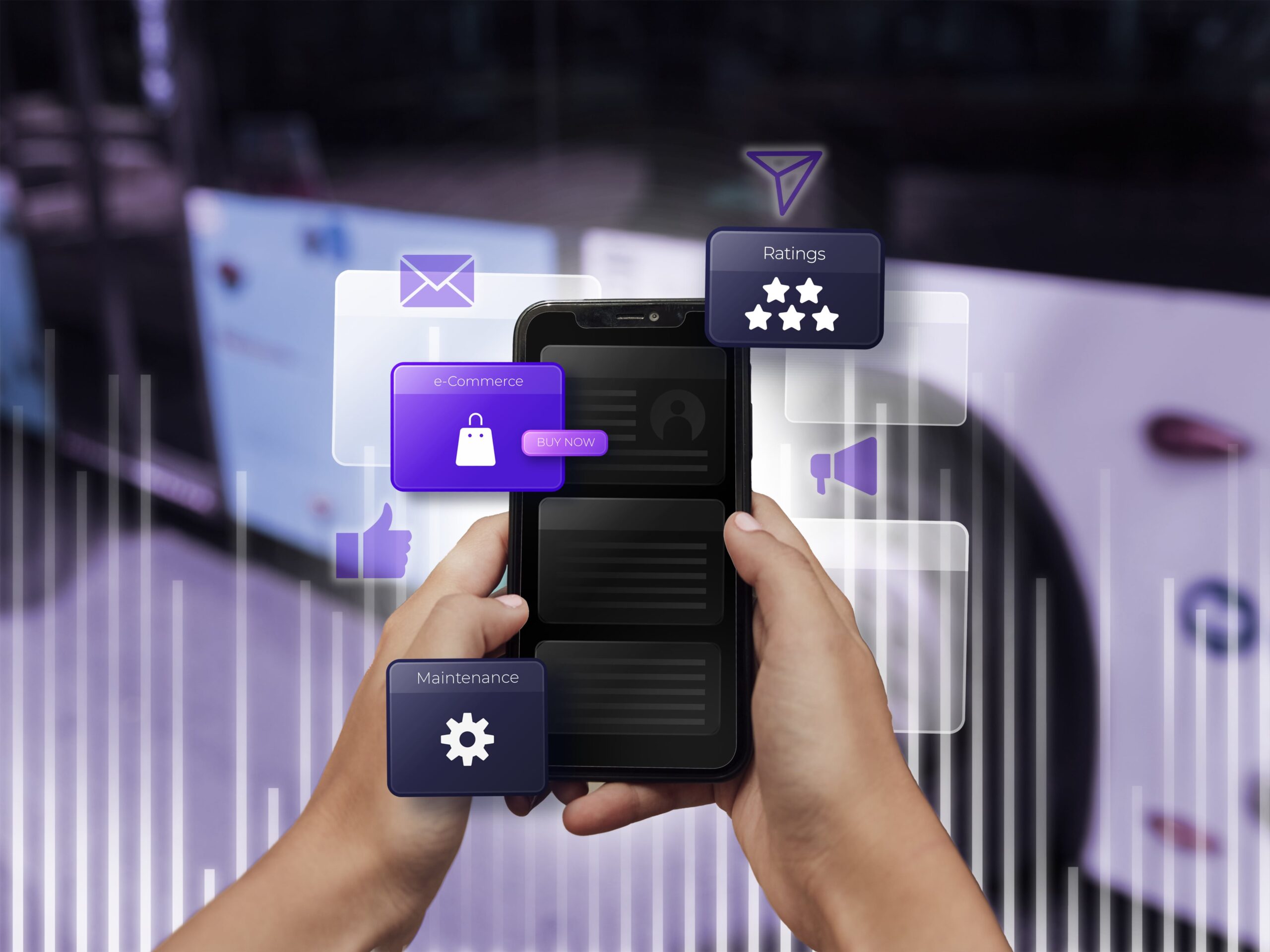Software
Notion vs. ClickUp in 2026: Best Tool for Remote Teams?
In the evolving landscape of remote work, choosing the right productivity platform can significantly impact team efficiency and collaboration. “Notion vs. ClickUp in 2026: Which is better for remote teams?” is a crucial comparison for businesses aiming to streamline operations in a hybrid or fully remote environment. Both Notion and ClickUp have introduced powerful features in 2026 that cater to project management, team communication, and knowledge sharing. While Notion excels in flexibility and note-taking with a sleek, all-in-one workspace, ClickUp leads in task tracking and workflow automation with robust reporting tools. Understanding the strengths and limitations of each platform can help remote teams choose the tool that best fits their goals, work style, and integration needs. This article breaks down the key differences, updates, and performance insights to help you make an informed decision between these two leading productivity software in 2026.
What is Notion?
Notion is an all-in-one productivity and collaboration tool designed to help individuals and teams manage tasks, projects, notes, and databases in a unified workspace. Its core strength lies in its flexibility—you can create anything from a simple to-do list to complex project dashboards using blocks and templates. Notion combines the functionalities of note-taking apps, document editors, and knowledge bases, making it especially useful for remote teams that need a central hub for collaboration. In 2026, Notion continues to evolve with improved AI features, enhanced real-time collaboration, and more powerful integrations, allowing teams to customize workflows without writing code. Its minimalist design and drag-and-drop interface make it beginner-friendly while still offering deep customization for advanced users.
What is ClickUp?
ClickUp is a comprehensive project management platform designed to streamline team workflows and boost productivity. Known for its powerful task management capabilities, ClickUp allows users to plan, organize, and track work across different views—such as lists, boards, calendars, and timelines. It offers built-in features like time tracking, goal setting, document sharing, and real-time collaboration, which are especially valuable for remote teams. In 2026, ClickUp has further strengthened its automation capabilities and reporting tools, giving teams detailed insights into performance and progress. Unlike traditional task managers, ClickUp is highly scalable and suitable for startups, freelancers, and large organizations alike. Its robust customization options make it easier for remote teams to align workflows with their specific operational needs.
Comparison: Notion vs ClickUp
When comparing Notion vs ClickUp in 2026, both tools offer impressive features tailored for remote teams—but they cater to different needs and work styles. Notion stands out with its flexible, all-in-one workspace that combines note-taking, document management, and knowledge sharing. It’s ideal for teams that prioritize content organization, wikis, and collaborative documentation. With customizable templates and a clean interface, Notion gives users the freedom to build personalized workflows. However, it can be limited in terms of advanced task management and reporting.
ClickUp, on the other hand, is purpose-built for project and task management. It excels in tracking goals, managing deadlines, and automating repetitive workflows. Remote teams benefit from ClickUp’s built-in time tracking, real-time chat, and detailed analytics that help monitor team performance. ClickUp also integrates with a wider range of third-party apps, making it a more dynamic choice for complex project tracking.
In summary, Notion is better suited for knowledge-driven teams, while ClickUp is ideal for task- and goal-oriented project execution. Choosing between them depends on your team’s specific priorities—collaboration and content management vs structured project workflows.
Read more:- Best Automation Testing Tools For Web Applications
Key Features of Notion
- Block-Based Editor: Create rich content using blocks like text, headings, images, videos, checklists, and more.
- Database Functionality: Organize information in table, list, board, gallery, and calendar views for better data handling.
- AI Integration (2026 Update): Smart writing assistant for summarizing text, generating ideas, and automating repetitive content tasks.
- Real-Time Collaboration: Multiple users can edit the same page simultaneously with real-time sync.
- Nested Pages & Hierarchical Structure: Create a deep workspace hierarchy to organize projects, documents, and notes efficiently.
- Custom Templates: Use and create templates for recurring tasks, project trackers, content calendars, and meeting notes.
- Integration Support: Connect with Slack, Google Drive, Trello, Figma, and more to unify your work.
- Clean & Minimal UI: Intuitive drag-and-drop design for easy navigation and user experience.
- Web Clipper: Save articles, pages, and content from the web directly into your Notion workspace.
- Mobile & Desktop Apps: Seamless syncing across devices for remote access and productivity.
Key Features of ClickUp
- Multiple Task Views: Manage projects using List, Board (Kanban), Calendar, Gantt, Timeline, and Box views.
- Advanced Task Hierarchy: Organize work using Spaces → Folders → Lists → Tasks → Subtasks for deep project structure.
- Built-in Time Tracking: Monitor how long tasks take with native or third-party time tracking tools.
- Goal & OKR Tracking: Set measurable goals and connect tasks to track progress in real time.
- Custom Automations (2026 Update): Automate recurring tasks, status updates, or notifications without coding.
- Collaboration Tools: Includes chat, whiteboards, document sharing, and real-time editing for smooth team interaction.
- Dashboards & Reporting: Visualize performance with customizable charts, widgets, and metrics.
- Recurring Tasks & Reminders: Automate routine work and never miss deadlines with built-in alerts.
- Role-Based Permissions: Control user access and sharing for secure collaboration within large teams.
- Extensive Integrations: Works with over 1,000 tools like Google Workspace, Slack, GitHub, Zoom, Dropbox, and more.
- Templates for Projects: Use pre-made or custom templates for agile workflows, CRM pipelines, and product roadmaps.
Notion’s Pros and Cons
Pros:
- Highly Customizable Workspace: Build personalized layouts for notes, wikis, databases, and dashboards.
- All-in-One Tool: Combines note-taking, task management, and documentation in one platform.
- Clean and Minimal UI: User-friendly design makes it easy to navigate and use.
- Real-Time Collaboration: Great for teams to edit documents and brainstorm together.
- Flexible Templates: Hundreds of community-created and official templates for faster setup.
- Powerful Database Features: Create interconnected data structures for project management.
- Affordable Pricing: Free plan is quite generous for individual users and small teams.
- Cross-Device Compatibility: Syncs seamlessly across desktop, web, and mobile apps.
Cons:
- Limited Task Management: Lacks advanced task tracking, Gantt charts, and workload views.
- Steep Learning Curve: New users may find customization and structure setup complex.
- No Native Time Tracking: Requires third-party integrations for time monitoring.
- Performance Issues: Can lag with large workspaces or databases.
- Offline Access Limitations: Offline mode is limited and not always reliable.
ClickUp’s Pros and Cons
Pros:
- Comprehensive Project Management: Ideal for tracking tasks, goals, deadlines, and sprints.
- Multiple Views Available: Offers List, Board, Calendar, Timeline, Gantt, and more to suit different workflows.
- Built-in Time Tracking: Natively track time spent on tasks without third-party tools.
- Advanced Automation: Set up workflows to automate repetitive actions.
- Powerful Reporting & Dashboards: Gain insights with custom reports, widgets, and metrics.
- Team Collaboration Tools: Includes chat, whiteboards, documents, and real-time editing.
- Highly Scalable: Suitable for individuals, small teams, and large enterprises.
- Frequent Updates: Constantly releasing new features and performance improvements.
Cons:
- Overwhelming Interface: So many features can confuse new users.
- Requires Training: Teams may need onboarding to fully utilize the platform.
- Occasional Bugs/Delays: Some users report lag or feature glitches, especially after new releases.
- Complex Setup: Customizing spaces and permissions can be time-consuming.
- Mobile Experience: Not as polished or smooth as the desktop/web versions.
Read more:- How to Protect Your Computer System Against Ransomware?
Conclusion
In conclusion, both Notion and ClickUp are powerful tools for remote teams in 2026, each catering to different needs. Notion excels in flexible content creation, documentation, and knowledge management, making it ideal for teams focused on collaboration and information sharing. ClickUp, on the other hand, is built for structured task management, automation, and detailed project tracking—perfect for teams that prioritize productivity and performance monitoring. The right choice depends on your team’s workflow, priorities, and integration needs. Whether you choose Notion’s simplicity or ClickUp’s depth, both platforms offer great value and can significantly enhance remote team collaboration and efficiency.
FAQs
1. Which is better for project management in 2026: Notion or ClickUp?
Answer:
ClickUp is better suited for advanced project management in 2026. It offers multiple task views, time tracking, goal setting, and automation features, making it ideal for teams focused on productivity and deadline-driven workflows.
2. Can Notion and ClickUp be used together for remote team collaboration?
Answer:
Yes, many remote teams use Notion and ClickUp together. Notion is often used for documentation and knowledge sharing, while ClickUp handles task management and project execution, providing a well-rounded workflow.
3. Is Notion free for teams, or do you need a paid plan?
Answer:
Notion offers a free plan with generous features for individuals and small teams. However, larger teams or those needing advanced permissions and admin controls may benefit from upgrading to a paid plan.
4. What are the key differences between Notion and ClickUp in 2026?
Answer:
Notion focuses on flexible documentation, databases, and AI-assisted content, while ClickUp emphasizes task management, automation, and detailed analytics. Each tool excels in different areas based on team needs.
5. Which tool is better for content creation and wikis: Notion or ClickUp?
Answer:
Notion is the better choice for content creation and team wikis. Its clean interface, powerful database features, and real-time collaboration make it ideal for building structured, searchable documentation and knowledge hubs.















